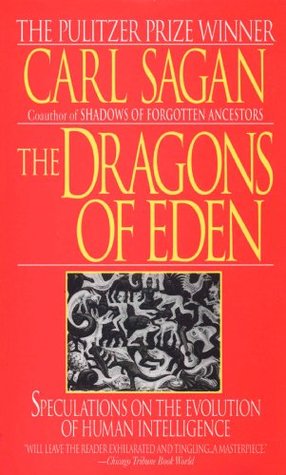More on this book
Community
Kindle Notes & Highlights
by
Carl Sagan
Read between
March 17 - March 17, 2018
We have made a kind of bargain with nature: our children will be difficult to raise, but their capacity for new learning will greatly enhance the chances of survival of the human species.
There are many instances in science, and particularly in biology, where those closest to the intricacies of the subject have a more highly developed (and ultimately erroneous) sense of its intractability than those at some remove. On the other hand, those at too great a distance may, I am well aware, mistake ignorance for perspective.
These mutations occur at random and are almost uniformly harmful—it is rare that a precision machine is improved by a random change in the instructions for making it.
Could abstract thought be a matter not of kind but of degree? Could other animals be capable of abstract thought but more rarely or less deeply than humans?
If chimpanzees have consciousness, if they are capable of abstractions, do they not have what until now has been described as “human rights”?
But chimpanzees can abstract. Like other mammals, they are capable of strong emotions. They have certainly committed no crimes. I do not claim to have the answer, but I think it is certainly worthwhile to raise the question: Why, exactly, all over the civilized world, in virtually every major city, are apes in prison?
Perhaps the most striking aspect of this entire subject is that there are nonhuman primates so close to the edge of language, so willing to learn, so entirely competent in its use and inventive in its application once the language is taught. But this raises a curious question: Why are they all on the edge? Why are there no nonhuman primates with an existing complex gestural language?
He suggests that our awareness of right hemisphere function is a little like our ability to see stars in the daytime. The sun is so bright that the stars are invisible, despite the fact that they are just as present in our sky in the daytime as at night. When the sun sets, we are able to perceive the stars. In the same way, the brilliance of our most recent evolutionary accretion, the verbal abilities of the left hemisphere, obscures our awareness of the functions of the intuitive right hemisphere, which in our ancestors must have been the principal means of perceiving the world.
Detecting conspiracies when there are no conspiracies is a symptom of paranoia; detecting them when they exist is a sign of mental health.
In my view, the human condition would be greatly improved if such confrontations and willingness to reject hypotheses were a regular part of our social, political, economic, religious and cultural lives.
In general, human societies are not innovative. They are hierarchical and ritualistic. Suggestions for change are greeted with suspicion: they imply an unpleasant future variation in ritual and hierarchy: an exchange of one set of rituals for another, or perhaps for a less structured society with fewer rituals. And yet there are times when societies must change.
Unless we destroy ourselves utterly, the future belongs to those societies that, while not ignoring the reptilian and mammalian parts of our being, enable the characteristically human components of our nature to flourish; to those societies that encourage diversity rather than conformity; to those societies willing to invest resources in a variety of social, political, economic and cultural experiments, and prepared to sacrifice short-term advantage for long-term benefit; to those societies that treat new ideas as delicate, fragile and immensely valuable pathways to the future.
This sort of information gathering is precisely what we call play. And the important function of play is thus revealed: it permits us to gain, without any particular future application in mind, a holistic understanding of the world, which is both a complement of and a preparation for later analytical activities.
Once intelligent beings achieve technology and the capacity for self-destruction of their species, the selective advantage of intelligence becomes more uncertain.
Finding a solution to a problem is helped enormously by the certain knowledge that a solution exists.
The universe is intricate and elegant. We wrest secrets from nature by the most unlikely routes. Societies will, of course, wish to exercise prudence in deciding which technologies—that is, which applications of science—are to be pursued and which not. But without funding basic research, without supporting the acquisition of knowledge for its own sake, our options become dangerously limited. Only one physicist in a thousand need stumble upon something like the displacement current to make the support of all thousand a superb investment for society. Without vigorous, farsighted and continuing
...more


